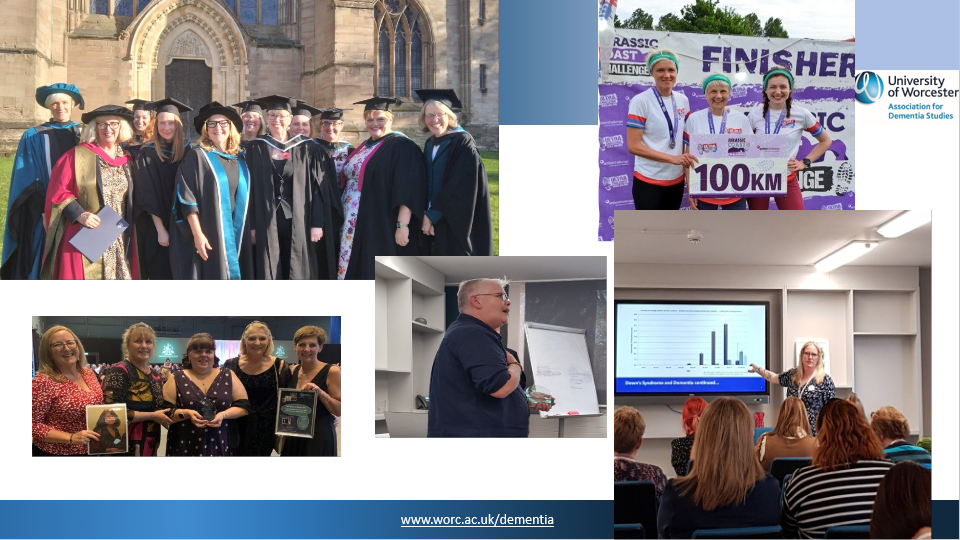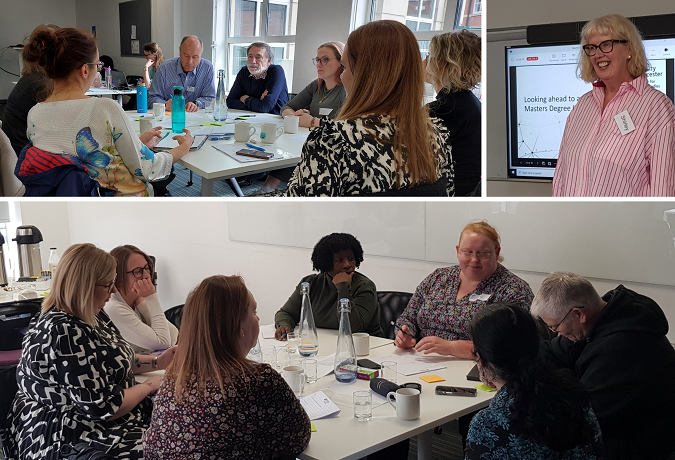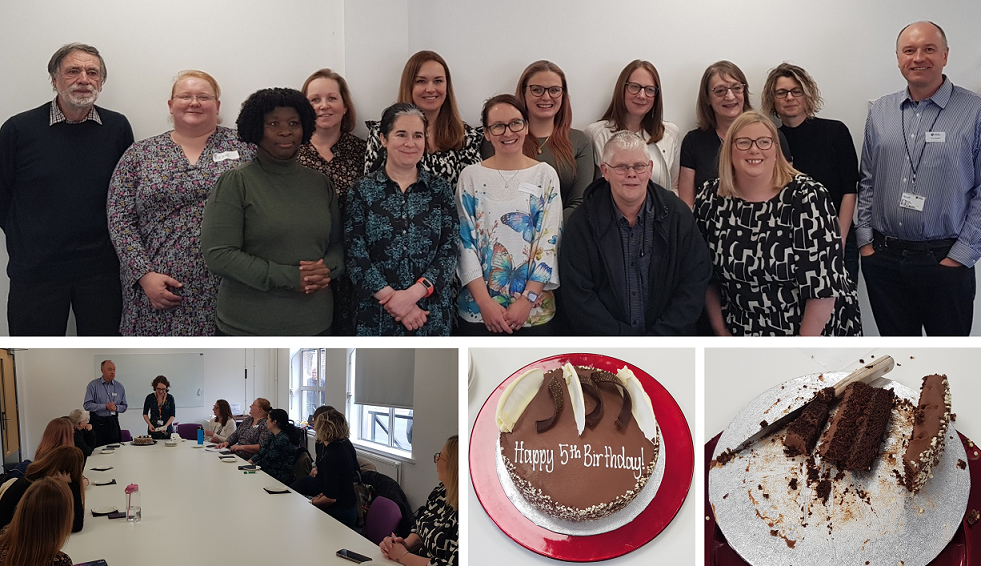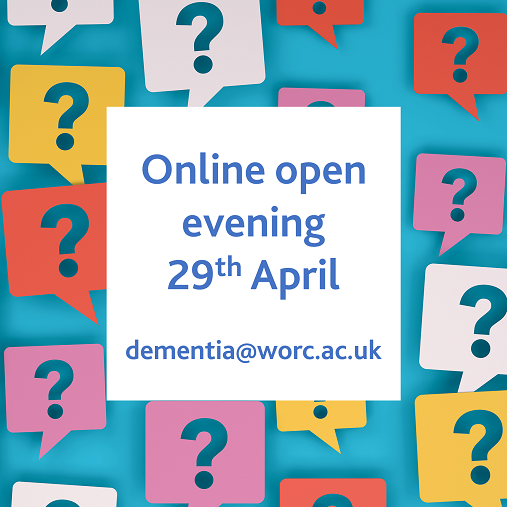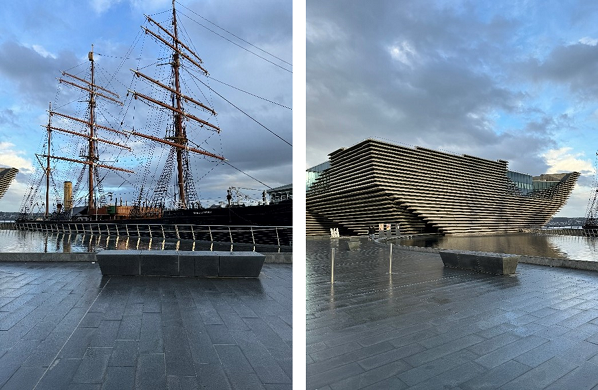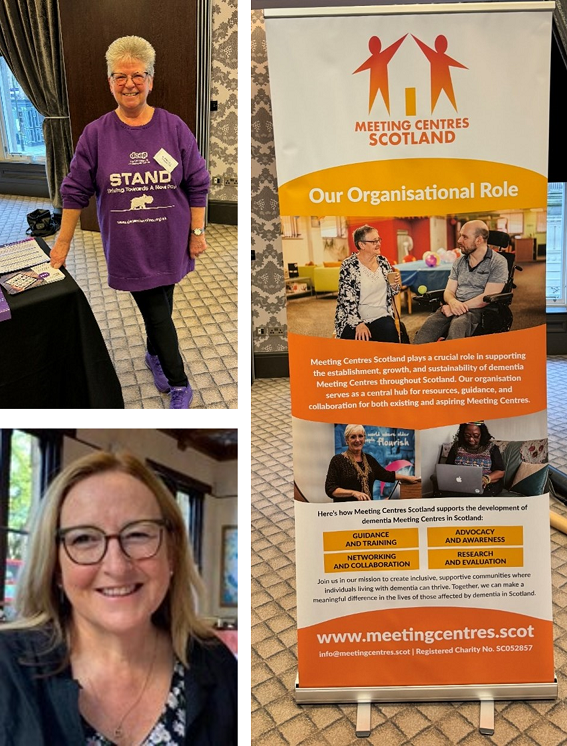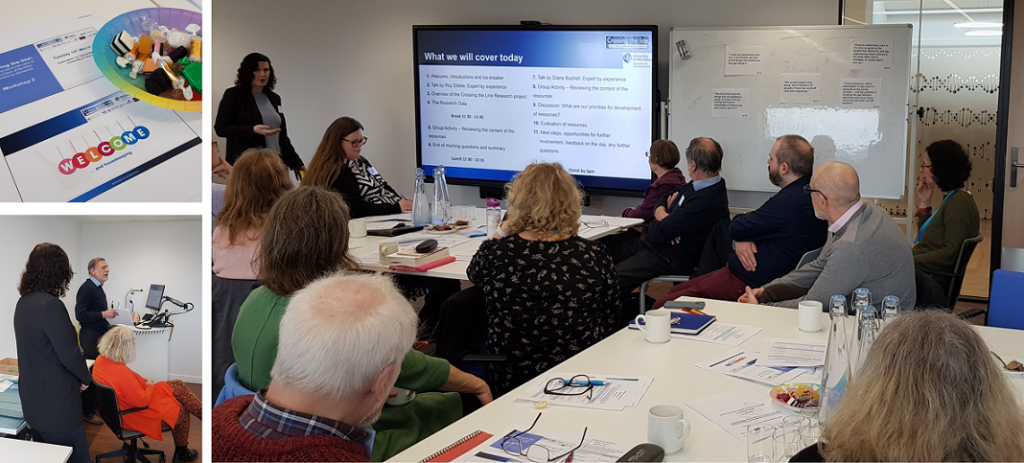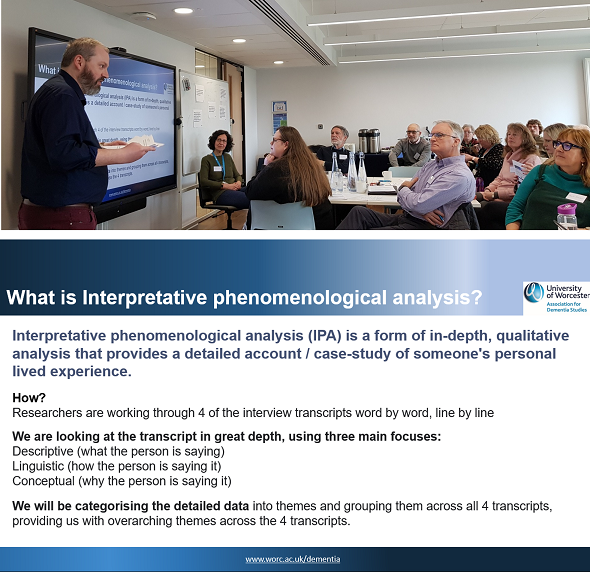This week we hand over to Gemma Moore, one of the Association for Dementia Studies PhD students to hear about their recent experiences at a symposium. Over to you Gemma…
Hello, my name is Gemma Moore and I am currently researching how people living with dementia can experience mark making in Meeting Centres. My website can be found here and my Linked in blog here.
Recently, I was accepted to participate in the Thriving Together Symposium – A symposium discussing ideas and experiences of couple hood, arts participation, and dementia. The event was hosted at The University of Sheffield and there was about 50-100 people in attendance (online and in person over the two days).
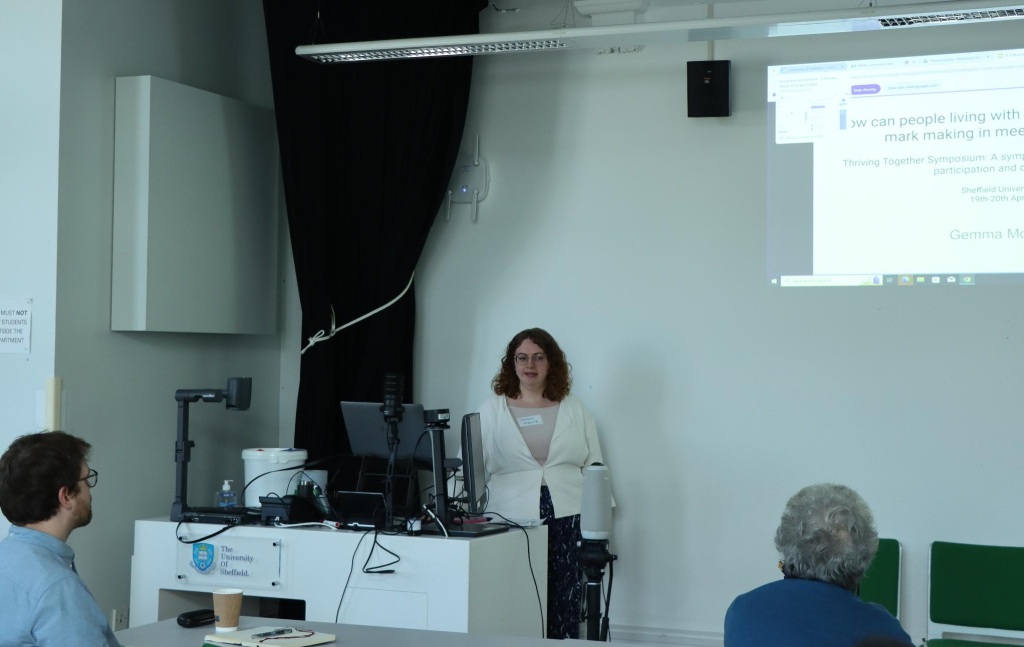
It was such a fantastic experience because I was able to represent the Association for Dementia Studies, University of Worcester at the conference.
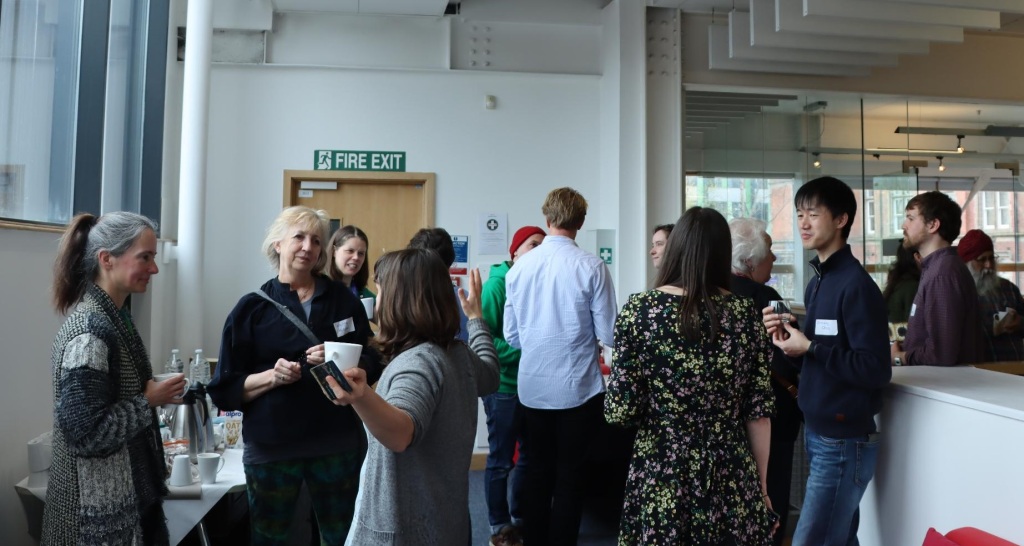
When I came across the callout to submit an abstract, I was fascinated by how many ideas of the symposium were relevant to my research study which is exploring: how can people living with dementia experience mark making in Meeting Centres? I have previously completed some work already in this area, which you can learn more about here. Visual responses created from this body of work have also been exhibited widely and gained national attention including an exhibition titled Marginalised Represented (2023) which you can find out more about here.
I was able to engage with academics, artists, organisations, carers and people with lived experience of dementia who were interested in learning more about how others have approached using the arts as a successful research method, as a tool to better understand couple hood, arts participation, and dementia.
There was a wide variety of speakers from all over the world representing various creative organisations who work with people living with dementia in different capacities. One organisation I was excited by was led by Dr Katey Warren at the University of Edinburgh and the talk was titled Evaluating the arts in dementia care: What is the role of meaning-making? I found this talk particularly interesting because I am part of the research group’s 2-year co-production group, find out more about this here.
I was also able to learn more about how others have previously or plan to approach embodied research practices.
I had some interesting discussions with academics around Meeting Centres, their origin and what creative ‘activities’ are pursued in these spaces. I also referenced the importance of the original Heritage Pathfinders project that I was involved in which helped to contextualise my PhD journey and mark making.
I found the conference beneficial because not only am I learning about how other PhD students are approaching their studies and are processing their results, but also how others are adopting creative approaches to research, which is what I am interested in, as my background is in Fine Art.
In result of the conference, it has inspired me to think deeper into how the practices of music and art are interlined through the ideas of movement and gesture.
Thanks Gemma, it sounds like you had a great experience at the conference.
Connect with ADS on twitter @DementiaStudies and on Facebook @adsuow
We’re also on Instagram, Threads and LinkedIn so have a look and find us there too.

